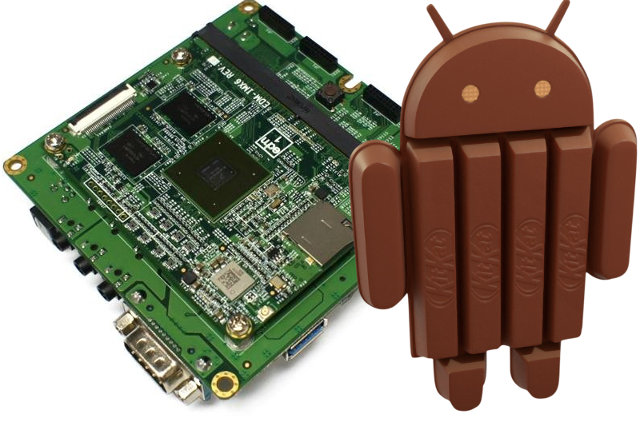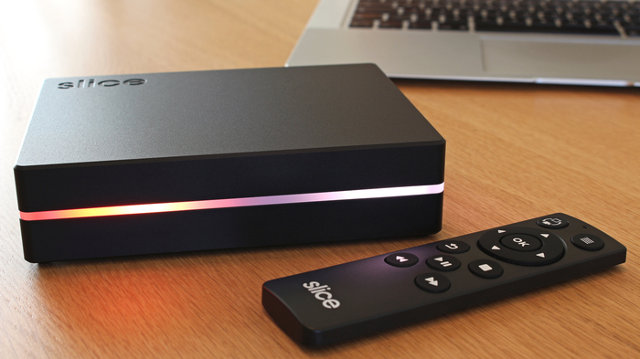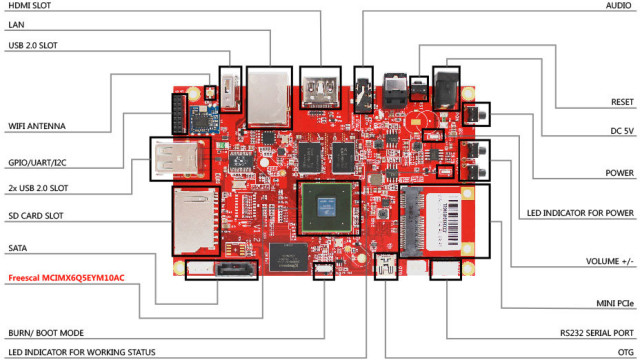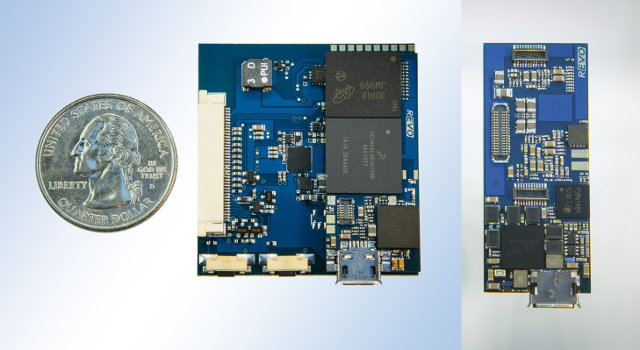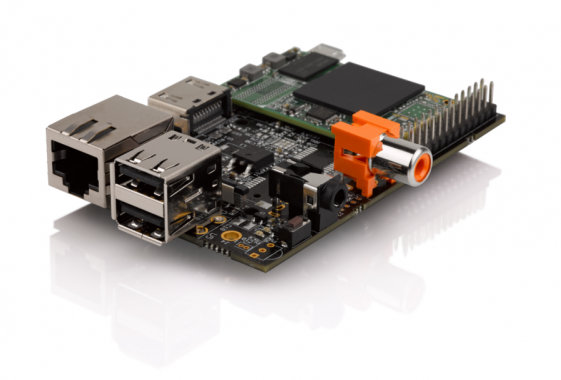Several Freescale i.MX6 development boards have gotten a KitKat treat this month with the release of Android 4.4 firmware and SDK. The boards involved include Wandboard Solo/Dual/Quad, as well as Solidrun Cubox-i boards, and the Raspberry Pi like HummingBoard. Thanks to the “magic” of device tree, a single firmware image is now provided for all the boards provided by a given company. For Wandboard Solo, Dual, and Quad: Demo firmware image – android-4.4.2-wandboard-20140815.zip SDK with source code – wandboard_android-4.4.2_fullsource_20140815.tar.xz For CuBox-i and HummingBoard: Firmware image – android-4.4.2-1.0.1b-ga-aaf118bb78-gapps.img.xz Android 4.4 KitKat souce code and build instructions are available on github. Thanks to … Harley! Jean-Luc Aufranc (CNXSoft)Jean-Luc started CNX Software in 2010 as a part-time endeavor, before quitting his job as a software engineering manager, and starting to write daily news, and reviews full time later in 2011. www.cnx-software.com
Raspberry Pi Based Slice, and EzeeCube Quad Media Players Support Internal Hard Drives (Crowdfunding)
Slice is a media player based on Raspberry Pi Compute Module, and EzeeCube Quad is media hub powered by Freescale i.MX6 Quad, and an upgrade to EzeeCube based on i.MX6 dual, which was successfully funded. The underlying hardware between Slice and EzeeCube is much different, but both devices have a lot in common. They are both media players currently being crowd-funded respectively in Kickstarter and Indiegogo, both comes with an internal hard drive, run XBMC, targets typical end-users (rather than tinkerers) and are somewhat pricey. Slice Media Player When I first saw Slice, all I could see was an Raspberry Pi module, put in a case with an internal hard drive bay, and lots of pretty RGB LEDs, and with an air mouse sold for an inflated price of 114 GBP ($190 US) without hard drive or 179 GBP ($300 US) with a 1TB drive, with admittedly some cheaper early […]
MYIR ARM9 Linux Development Boards & Computer-on-Modules Powered by Freescale i.MX28 Processor
MYIR MYD-IMX28X development boards and MYC-IMX28X CPU modules had been announced in May 2014, but I’ve just found out about them via the company’s newsletter. The CoMs are powered by Freescale i.MX28 ARM9 processors (i.MX283 or i.MX287), feature 128 MB RAM, 256 MB Flash, and connect to a baseboard to make the development boards. Target applications include smart gateways, human-machine interfaces (HMIs), handheld devices, scanners, portable medical, experimental education as well as other industrial applications. MYC-IMX28X CoMs MYC-IMX28X computer-on-module specifications: Processor – Freescale i.MX283 or i.MX287 ARM926EJ-STM processor up to 454MHz with 128KB SRAM, 128KB ROM, 1280 bits of OCOTP ROM, 16KB/32KB I and D Cache System Memory – 128MB DDR2 SDRAM Storage – 256MB NAND flash, 128KB SPI flash Connectivity – On-board Ethernet PHY Connectors – 2x 1.27mm pitch 2 x 40-pin SMT male expansion connectors with access to Ethernet – Up to 2 Ethernet (two for i.MX287, one for i.MX283) USB […]
OpenELEC Ported to TBS 2910 Matrix Board Supports DVB T/S/C, DVR and IPTV Server Functions
TBS 2910 Matrix, also simply called TBS Matrix, is a board powered by Freescale i.MX6 Quad SoC with 2GB RAM, 16 GB eMMC, and supporting various TBS USB DVB tuners. The company provides images for Ubuntu, Android, and something called Matrix TV. The company also releases the source code for the boards, and two OpenELEC developers, namely Ovi and Vpeter, though it could be a nice idea to port OpenELEC to TBS Matrix, and that’s exactly what they did. The video demo below shows online video streaming via 1channels add-on, which can be done with any Android or Linux media player running XBMC or OpenELEC, but the second part is more interesting, as it shows Live TV from a Cable TV USB tuner connected to the board. Ovi also confirmed the system supports DVR, and you can also use the board as a micro IPTV server. DVR function is supported […]
Linux 3.16 Released
Linus Torvalds announced the release of Linux Kernel 3.16 over the week-end: So nothing particularly exciting happened this week, and 3.16 is out there. And as usual (previous release being the exception) that means that the merge window for 3.17 is obviously open. And for the third time in a row, the timing sucks for me, as I have travel coming up the second week of the merge window. Many other core developers will be traveling too, since it’s just before the kernel summit in Chicago. So we’ll see how the next merge window goes, but I’m not going to worry about it overmuch. If I end up not having time to do all the merges, I might delay things into the week of the kernel summit, but I’ll hope to get most of the big merging done this upcoming week before any travel takes place, so maybe it won’t come […]
littleBits CloudBit Wi-Fi Module Simplifies DIY IoT Designs
littleBits Electronics is a company selling tiny modules that snap together with tiny magnets for prototyping called… littleBits. They do not require soldering, wiring, or programming, can be buttons, sensors, motors, etc…, and are the electronics equivalent of LEGO, and are suitable to 8 years old and older kids. The company have recently launched a new product called CloudBit, a module based on Freescale i.MX233 with Wi-Fi connectivity meant to be used/snapped with existing littleBits. CloudBit hardware specifications: Processor – Freescale i.MX233 ARM926EJ-S processor @ 454MHz System Memory – 64MB of RAM; Storage – microSD slot with included 4GB micro SD card pre-loaded with a customized Arch Linux ARM distribution Connectivity – 802.11b/g Wi-Fi via included USB dongle USB – micro USB port (for power only) Connectors – 2x BitSnap connectors for LittleBits connectivity using i.MX233 ADC/DAC signals Debugging – Pads for UART (3.3V, 8-N-1, 115,200 baud) to access the […]
Freescale WaRPBoard Reference Platform for Wearables is Now Available for Pre-order
Back in January, Freescale announced WaRP (Wearable Reference Platform) comprised of the WaRPboard, a tiny board based on Freescale i.MX 6SoloLite running Android, and a daughter board with KL16 Cortex M0+ MCU and several sensors. The company collaborated with Revolution Robotics for the hardware design, and Kynetics for the software, and the platform is now available for pre-order for $149, and a few more details have surfaced since my first article. The hardware specifications of WaRP are as follows: WaRPboard: SoC – Freescale i.MX 6SoloLite Cortex A9 processor @ 1GHz with 2D graphics Vivante GC355 and GC320 GPUs. System Memory – LPDDR2 (Micron Multi-Chip Package) Storage – 4Gbit eMMC (Same Micron MCP chip as for RAM) Connectivity – WLAN and Bluetooth 4.0 LE via Murata LBEH17YSHC Display I/F: MIPI DSI for LCD display + touchscreen EPCD for E-Ink Display Sensors – Xtrinsic FXOS8700CQ, 6-Axis Sensor with Integrated Linear Accelerometer and Magnetometer. Daughtercard: […]
SolidRun HummingBoard Raspberry Pi-Like Board is Now Available for $45 and Up
HummingBoard is a board made by SolidRun that’s mechanically compatible with the Raspberry Pi, and offering the same expansions connectors, and a few extras. The board is comprised of a baseboard and a microSoM powered by Freescale i.MX6 Solo, Dual Lite or Dual. At first it looked like an internal project, but the board went viral together with the Banana Pi, and the company has now announced availability for the HummingBoard with pricing starting at $45 for the single core version up to $100 for the dual core version with extra options. There are currently three models: HummingBoard-i1 ($44.90) – Freescale i.MX6 Solo with GC880 GPU, 512 MB RAM, 10/100M Ethernet HummingBoard-i2 ($74.99) – Freescale i.MX6 Dual Lite with GC880 GPU, 1GB RAM, 10/100M Ethernet HummingBoard-i2ex ($99.99) – Freescale i.MX6 Dual with GC2000 GPU, 1GB RAM, Gigabit Ethernet, LVDS output, mSATA II interface, PCI Express Gen 2 slot, RTC with […]


